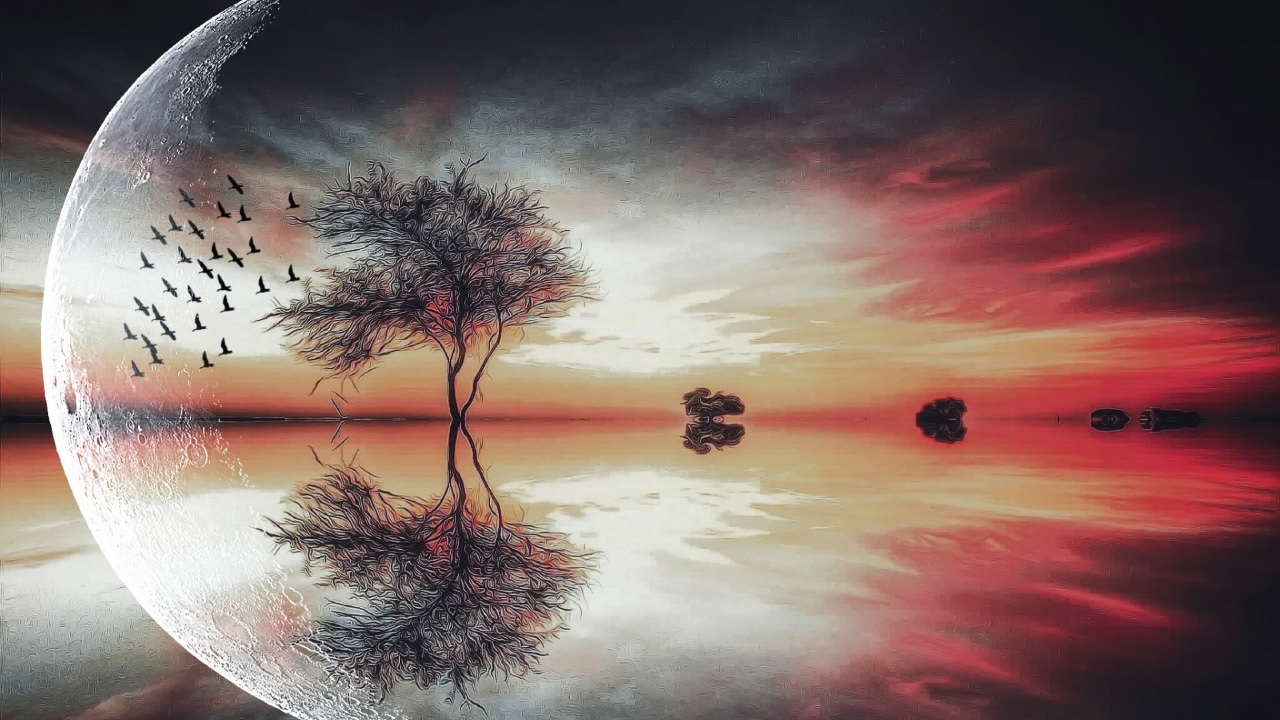mirror of
https://github.com/LCTT/TranslateProject.git
synced 2025-01-04 22:00:34 +08:00
162 lines
6.2 KiB
Markdown
162 lines
6.2 KiB
Markdown
[#]: subject: "My favorite Linux commands for optimizing web images"
|
||
[#]: via: "https://opensource.com/article/21/12/optimize-web-images-linux"
|
||
[#]: author: "Ayush Sharma https://opensource.com/users/ayushsharma"
|
||
[#]: collector: "lujun9972"
|
||
[#]: translator: "geekpi"
|
||
[#]: reviewer: "wxy"
|
||
[#]: publisher: "wxy"
|
||
[#]: url: "https://linux.cn/article-14096-1.html"
|
||
|
||
用 Linux 命令优化网页图片
|
||
======
|
||
|
||
> 为网页上的缩略图和横幅图片生成经过调整和优化的图片。
|
||
|
||

|
||
|
||
以前我在处理网页工作时,我对图像敬而远之。处理和优化图像既不精确又费时。
|
||
|
||
后来我发现了一些命令,改变了我的想法。为了创建网页,我使用 Jekyll,所以我在说明中包括了它。然而,这些命令也可以用于其他静态网站生成器。
|
||
|
||
### Linux 上的图像命令
|
||
|
||
对我来说有用的命令是 `optipng`、`jpegoptim`,当然还有古老的 `imagemagick`。它们一起使处理图像变得容易管理,甚至可以自动化。
|
||
|
||
下面是我如何使用这些命令实现我的解决方案的概述。我把文章图片放在我的 `static/images` 文件夹中。在那里,我生成了所有 PNG 和 JPG 图片的两个副本:
|
||
|
||
1. 一个裁剪过的缩略图版本,尺寸为 422×316
|
||
2. 一个更大的横幅版本,尺寸为 1024×768
|
||
|
||
然后,我把每个副本(缩略图和横幅)放入自己的文件夹,并利用 Jekyll 的自定义变量来确定文件夹路径。下面我将更详细地介绍这些步骤中的每一步。
|
||
|
||
#### 安装
|
||
|
||
要跟上我的解决方案,请确保你已经安装了所有的命令。在 Linux 上,你可以使用软件包管理器安装 `optipng`、`jpegoptim` 和 `imagemagick`。
|
||
|
||
在 Fedora、CentOS、Mageia 和类似系统上:
|
||
|
||
```
|
||
$ sudo dnf install optipng jpegoptim imagemagick
|
||
```
|
||
|
||
在 Debian、Elementary、Mint 和类似系统上:
|
||
|
||
```
|
||
$ sudo apt install optipng jpegoptim imagemagick
|
||
```
|
||
|
||
在 macOS 上,使用 [MacPorts][2] 或 [Homebrew][3]:
|
||
|
||
```
|
||
brew install optipng jpegoptim imagemagick
|
||
```
|
||
|
||
在 Windows 上,使用 [Chocolatey][4]。
|
||
|
||
### 为缩略图和横幅创建文件夹
|
||
|
||
安装完这些命令后,我在 `static/images` 下创建了新的文件夹。生成的缩略图放在 `img-thumbs`,横幅放在 `img-normal`。
|
||
|
||
```
|
||
$ cd static/images
|
||
$ mkdir -p img-thumbs img-normal
|
||
```
|
||
|
||
创建了文件夹后,我把所有的 GIF、SVG、JPG 和 PNG 文件复制到这两个文件夹。我把 GIF 和 SVG 原封不动地用于缩略图和横幅图片。
|
||
|
||
```
|
||
$ cp content/*.gif img-thumbs/; cp content/*.gif img-normal/
|
||
$ cp content/*.svg img-thumbs/; cp content/*.svg img-normal/
|
||
$ cp content/*.jpg img-thumbs/; cp content/*.jpg img-normal/
|
||
$ cp content/*.png img-thumbs/; cp content/*.png img-normal/
|
||
```
|
||
|
||
### 处理缩略图
|
||
|
||
为了调整和优化缩略图的大小,我使用了三个命令。
|
||
|
||
我使用 `ImageMagick` 的 `mogrify` 命令来调整 JPG 和 PNG 的大小。因为我希望缩略图是 422×316,所以命令看起来像这样:
|
||
|
||
```
|
||
$ cd img-thumbs
|
||
$ mogrify -resize 422x316 *.png
|
||
$ mogrify -format jpg -resize 422x316 *.jpg
|
||
```
|
||
|
||
现在我用 `optipng` 优化 PNG,用 `jpegoptim` 优化 JPG:
|
||
|
||
```
|
||
$ for i in *.png; do optipng -o5 -quiet "$i"; done
|
||
$ jpegoptim -sq *.jpg
|
||
```
|
||
|
||
在上述命令中:
|
||
|
||
* 对于 `optipng`,`-o5` 开关设置了优化的级别,0 是最低的。
|
||
* 对于`jpegoptim`,`-s` 剥离所有图像元数据,`-q` 设置安静模式。
|
||
|
||
### 处理横幅
|
||
|
||
我处理横幅图片的方法与处理缩略图的方法基本相同,除了尺寸外,横幅图片的尺寸为 1024×768。
|
||
|
||
```
|
||
$ cd ..
|
||
$ cd img-normal
|
||
$ mogrify -resize 1024x768 *.png
|
||
$ mogrify -format jpg -resize 1024x768 *.jpg
|
||
$ for i in *.png; do optipng -o5 -quiet "$i"; done
|
||
$ jpegoptim -sq *.jpg
|
||
```
|
||
|
||
### 配置 Jekyll 中的路径
|
||
|
||
`img-thumbs` 目录现在包含我的缩略图,`img-normal` 包含横幅。为了更轻松一些,我在Jekyll的 `_config.yml` 中把它们都设置为自定义变量。
|
||
|
||
```
|
||
content-images-path: /static/images/img-normal/
|
||
content-thumbs-images-path: /static/images/img-thumbs/
|
||
```
|
||
|
||
使用这些变量很简单。当我想显示缩略图时,我把 `content-thumbs-images-path` 加到图片上。当我想显示完整的横幅时,我在前面添加 `content-images-path`。
|
||
|
||
```
|
||
{% if page.banner_img %}
|
||
<img src="{{ page.banner_img | prepend: site.content-images-path | \
|
||
prepend: site.baseurl | prepend: site.url }}" alt="Banner image for \
|
||
{{ page.title }}" />
|
||
{% endif %}
|
||
```
|
||
|
||
### 总结
|
||
|
||
我可以对我的优化命令做几个改进。
|
||
|
||
使用 `rsync` 只复制改变过的文件到 `img-thumbs` 和 `img-normal` 是一个明显的改进。这样一来,我就不会一次又一次地重新处理文件。将这些命令添加到 [Git 提交前钩子][5] 或 CI 流水线中是另一个有用的步骤。
|
||
|
||
调整和优化图像以减少其大小,对用户和整个网页来说都是一种胜利。也许我减少图片尺寸的下一步将是 [webp][6]。
|
||
|
||
更少的字节通过电线传输意味着更低的碳足迹,但这是另一篇文章。目前,用户体验的胜利已经足够好了。
|
||
|
||
本文原载于[作者的博客][7],已获授权转载。
|
||
|
||
--------------------------------------------------------------------------------
|
||
|
||
via: https://opensource.com/article/21/12/optimize-web-images-linux
|
||
|
||
作者:[Ayush Sharma][a]
|
||
选题:[lujun9972][b]
|
||
译者:[geekpi](https://github.com/geekpi)
|
||
校对:[wxy](https://github.com/wxy)
|
||
|
||
本文由 [LCTT](https://github.com/LCTT/TranslateProject) 原创编译,[Linux中国](https://linux.cn/) 荣誉推出
|
||
|
||
[a]: https://opensource.com/users/ayushsharma
|
||
[b]: https://github.com/lujun9972
|
||
[1]: https://opensource.com/sites/default/files/styles/image-full-size/public/lead-images/browser_web_internet_website.png?itok=g5B_Bw62 (Digital creative of a browser on the internet)
|
||
[2]: https://opensource.com/article/20/11/macports
|
||
[3]: https://opensource.com/article/20/6/homebrew-mac
|
||
[4]: https://opensource.com/article/20/3/chocolatey
|
||
[5]: https://opensource.com/life/16/8/how-construct-your-own-git-server-part-6
|
||
[6]: https://opensource.com/article/20/4/webp-image-compression
|
||
[7]: https://www.ayushsharma.in/2021/11/optimising-jpg-and-png-images-for-a-jekyll-blog
|